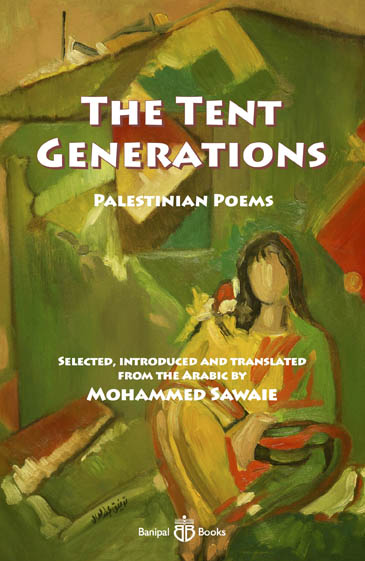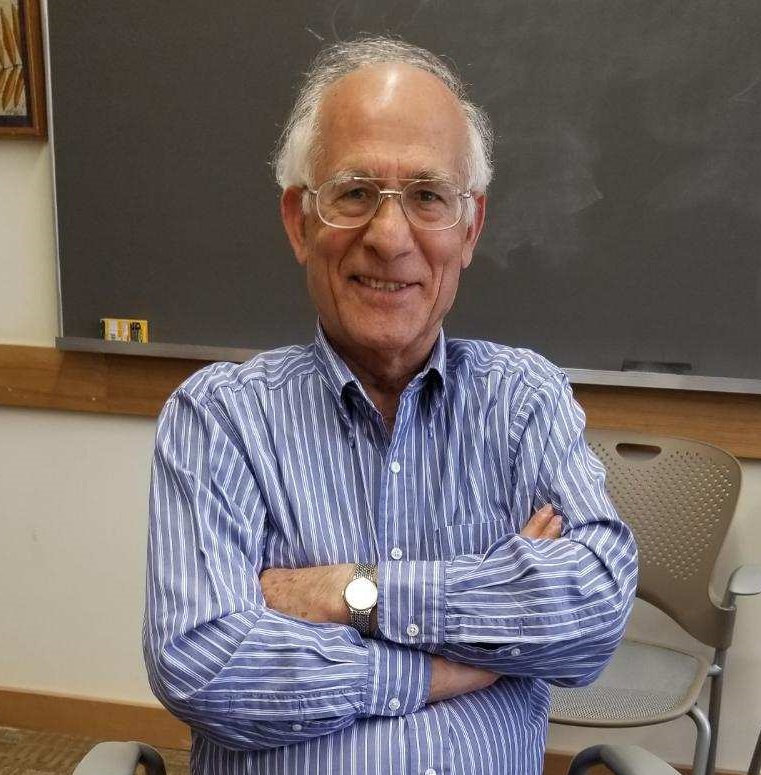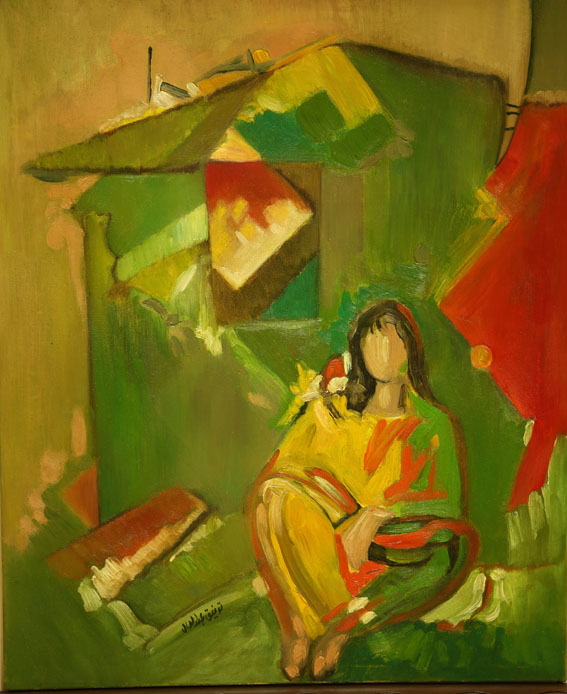Receive Our Newsletter
For news of readings, events and new titles.

Available from all good bookshops
from Banipal Books • from Amazon • from Bookshop.org
The Tent Generations, Palestinian Poems gathers together works by 16 Palestinian poets, written over the past seven decades, that give expression to the Palestinian experience under Israeli military rule and Israeli occupation, as well as the experience of dispersion and displacement from their homeland following the Nakba of the 1948 Arab-Israeli War, and the subsequent wars of 1967 and 1973.
These poems illuminate Palestinian responses to these tragic conflicts and wars that contributed to the loss of homeland, life under Israeli military rule and occupation, and the fragmentation and ruin of society and community. The poets in this collection span and represent different generations and narratives, different backgrounds, and different locations, some of whose voices have not been heard previously in English, and, by and large, others whose works are not previously translated into English.
THE POETS:
|
Asma Rizq Tubi |
Fadwa Tuqan |
Mu’in Bseiso |
Harun Hashim Rasheed |
|
Tawfiq Zayyad |
Youssef al-Khatib |
Rashid Hussein |
Abdel Wahab Zahida |
|
Samih al-Qasim |
Salem Jubran |
Zeinab Habash |
Muhammad al-Qaisi |
|
Mahmoud al-Najjar |
Yousef al-Deek |
Rita Odeh |
Marwan Makhoul |
Although these poems cannot resolve the deep contradictions and disagreements that divide Palestinians and Israelis today, Mohammed Sawaie shows in this collection how these poets use poetry to describe their relationship to the Palestinian people, their homeland, and the presence of an Israeli occupier in their midst. His erudite research and selection of sources, his scholarly introduction, with notes, biographies and glossary, along with a chronological presentation of the poets, make it an ideal book for general readers, students, and scholars alike.
______________________________________________________________________
In an interview in the online magazine Asymptote by Eric Calderwood, Mohammed Sawaie expanded on his reasons for creating this collection in English translation, saying:
"As Palestinians continue to struggle for their home country and their own independent state, they are continually faced by a strong adversary that controls every aspect of their lives. In their struggle against Israeli occupation, the daily violent acts culminate in flareups, devastating wars, invasions of homes, killings, imprisonments, and so on. Such events often go unreported in the Western media, unless there is a large-scale war. Nevertheless, due to the wide use of social media, more and more people are becoming increasingly aware of the injustices experienced by Palestinians. It is only natural, in my view, to introduce to English-speaking readers authentic voices representing Palestinians . . ." Click to read the full interview.
__________________________________________________________________________
* * *
 Mohammed Sawaie's lifelong love for the Arabic language has made him an authority on the sociolinguistic, historical, and grammatical aspects of Arabic. His Fundamentals of Arabic Grammar (Routledge 2014) has helped transform the teaching of Arabic in North America. The Tent Generations is the latest title in an impressive bibliography of over ten books in English and Arabic, which can be found in libraries worldwide, including Linguistic Variation and Speaker’s Attitudes: A Sociolinguistic Study of Some Arabic Dialects (1994), and Arabic-Speaking Migrants in the United States and Canada: a Bibliographical Guide with Annotation (1985).
Mohammed Sawaie's lifelong love for the Arabic language has made him an authority on the sociolinguistic, historical, and grammatical aspects of Arabic. His Fundamentals of Arabic Grammar (Routledge 2014) has helped transform the teaching of Arabic in North America. The Tent Generations is the latest title in an impressive bibliography of over ten books in English and Arabic, which can be found in libraries worldwide, including Linguistic Variation and Speaker’s Attitudes: A Sociolinguistic Study of Some Arabic Dialects (1994), and Arabic-Speaking Migrants in the United States and Canada: a Bibliographical Guide with Annotation (1985).
Professor of Arabic at the University of Virginia, Mohammed Sawaie is a self-described “passionate reader of both English and Arabic on issues related to Arabic literary production, the Middle East generally and Palestine in particular”, a passion that comes through in The Tent Generations.
An avid gardener as well as researcher, he has brought “the search for translatable poets and poems not translated previously, or unknown to English readers” to create a work of exquisite beauty and profound ethical engagement.
In his comprehensive and fascinating introduction to The Tent Generations, Mohammed Sawaie writes:
The Palestinian poets included in The Tent Generations, Palestinian Poems represent different age groups and backgrounds, yet they all express a strong sense of “Palestinian-ness”. They include Israeli citizens, the offspring of those who remained in Palestine after 1948. They also include poets who lived or continue to live in the West Bank and Gaza, areas that are still occupied, or controlled by Israelis as of this writing. Finally, they include poets born in Palestine, but whose families were expelled, or migrated to neighboring Arab countries as a result of the Arab-Israeli wars of the Nakba in 1948, and then of 1967 and 1973.
The educational backgrounds of the poets represented here vary. Salem Jubran, Samih al-Qasim, Tawfiq Zayyad, and Marwan Makhoul, for example, were products of the Israeli educational system. Others attended institutions of learning in various Arab countries. Fadwa Tuqan received little formal education in her city of Nablus; she, however, acquired instruction in language, support in writing poetry, and encouragement to publish her poems from her brother, the well-known poet Ibrahim Tuqan, mentioned previously.
All these poems are written in fusha Arabic, Modern Standard Arabic, the codified literary, written language shared by educated speakers of Arabic in their various respective regions. Palestinian folkloric poetry, referred to as al-Shi’r al-Sha’bi or Shi’r al-‘Ammiyya, is not included in this work. Folk poetry, richly expressed orally in the Palestinian dialect, ‘Ammiyya, embraces a variety of themes (national pride, panegyric, love, generosity toward guests/strangers, and so on), including the political themes expressed in the poems in this work. There is a rising interest in collecting and preserving this folkloric poetry, and several anthologies of oral poetry as well as studies have recently appeared.
The 1948 Nakba, the wars of 1967 and 1973, and their subsequent tragic impact find expression in the work of Palestinian poets. Some of the authors in this collection had firsthand experience of the loss of home, and the up-rootedness from and destruction of their villages and cities. Others acquired knowledge of such experiences, the tragedy that befell Palestinians, through stories told by grandparents or parents, stories of hardship and deprivation transmitted from one generation to another. Thus, poets express in vocabulary specific to the Palestinian experience of the dispossession of homeland, the forced expulsion, the pain of living in the miserable conditions of refugee camps in the diaspora.
* * *
 • The front cover painting is from "Watani al Hazeen" (Melancholic Homeland), oil on canva,50x60 cm, 1985, by Toufic Abdul-Al (1938–2002), reproduced with kind permission of the Abdul-Al family.
• The front cover painting is from "Watani al Hazeen" (Melancholic Homeland), oil on canva,50x60 cm, 1985, by Toufic Abdul-Al (1938–2002), reproduced with kind permission of the Abdul-Al family.
Toufic Abdul-Al was born in Acre, and was forced to leave Palestine in 1948, and live the rest of his life in Lebanon. An artist, sculptor, and poet, his distinctive style enriched Palestinian cultural heritage with a varied spectrum of exceptional works as he joined the top ranks of artists in the post-Nakba Palestinian art scene. He participated in numerous exhibitions in the Arab world, with his work recognized through many awards.
Dowload the Press Announcement